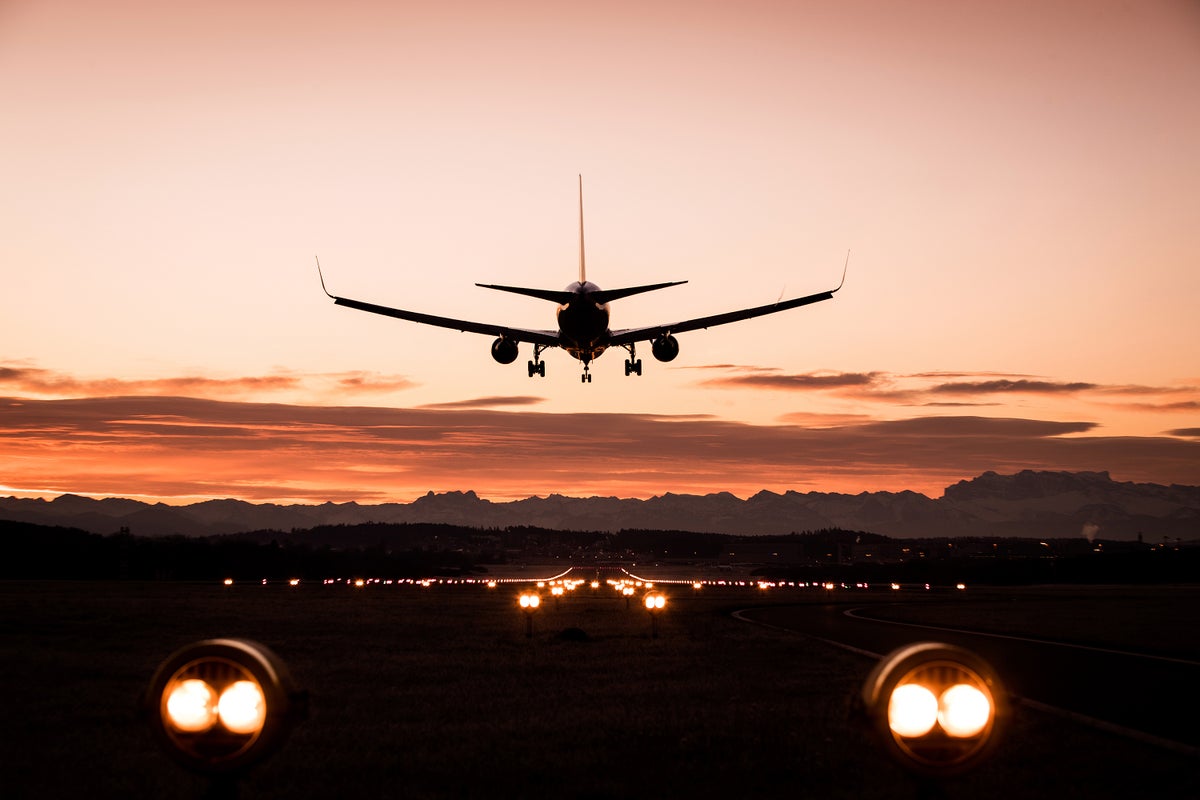Could AI Have Prevented SkyWest Airliner’s Near Collision with a B-52 Bomber?
A SkyWest pilot’s last-second decision could have prevented a collision that air traffic controllers may not have foreseen
Join Our Community of Science Lovers!
The pilot also noted that the air-traffic control tower that serves the airport does not have radar and that its controllers depend on their own vision of planes near the airfield to make decisions. He added that the nearby Minot Air Force Base does have radar, and he wondered why no one from that operation had given him a warning. It is not uncommon for small airports to lack radar or to rely on communication from larger airports nearby that do have radar, whether commercial or military.
This incident occurred six months after a military Black Hawk helicopter crashed into an American Airlines passenger jet near Ronald Reagan Washington National Airport, killing 67 people. Scientific American recently ran a story investigating whether artificial intelligence could improve air-traffic-control (ATC) safety or even replace air-traffic controllers. The near collision for SkyWest makes the question even more pertinent.
If you’re enjoying this article, consider supporting our award-winning journalism by subscribing. By purchasing a subscription you are helping to ensure the future of impactful stories about the discoveries and ideas shaping our world today.
In that story, by Adrienne Bernhard, we noted that “short-staffed and overworked ATC workers try to monitor thousands of flights each day. Their work relies on many systems that have remained virtually unchanged for decades: runway lights are supported by technology first rolled out in the 1980s, and controllers in some towers still use paper to track aircraft movements. But perhaps the most analog aspect of ATC is that human beings are needed to guide pilots at every stage of flight.” We added that “given the meteoric rise of AI applications, the control tower may be ripe for full automation in the near future. Human intervention would be the exception, not the rule.”
An AI system is being tested at London’s Heathrow Airport and at Singapore Changi Airport. We wrote that “AI control would raise legal and ethical questions. Could AI be blamed for an accident? How risk-averse would an automated ATC system be? How risk-averse should it be?” We also noted that “aviation experts aren’t confident that the benefits would outweigh possible new problems resulting from increased automation in the tower. For one thing, AI currently lacks the creativity, intuition or adaptability needed to deftly handle any emergency that deviates from historical flight data. Automated technology adds another layer of unpredictability to a system already mired in uncertainty. Forcing pilots and controllers to become more dependent on technology could erode their ability to make quick decisions. And increased digitization of ATC systems could make them vulnerable to cybersecurity threats.”
Mark Fischetti has been a senior editor at Scientific American for 17 years and has covered sustainability issues, including climate, weather, environment, energy, food, water, biodiversity, population, and more. He assigns and edits feature articles, commentaries and news by journalists and scientists and also writes in those formats. He edits History, the magazine’s department looking at science advances throughout time. He was founding managing editor of two spinoff magazines: Scientific American Mind and Scientific American Earth 3.0. His 2001 freelance article for the magazine, “Drowning New Orleans,” predicted the widespread disaster that a storm like Hurricane Katrina would impose on the city. His video What Happens to Your Body after You Die?, has more than 12 million views on YouTube. Fischetti has written freelance articles for the and many others. He co-authored the book Weaving the Web with Tim Berners-Lee, inventor of the World Wide Web, which tells the real story of how the Web was created. He also co-authored The New Killer Diseases with microbiologist Elinor Levy. Fischetti is a former managing editor of IEEE Spectrum Magazine and of Family Business Magazine. He has a physics degree and has twice served as the Attaway Fellow in Civic Culture at Centenary College of Louisiana, which awarded him an honorary doctorate. In 2021 he received the American Geophysical Union’s Robert C. Cowen Award for Sustained Achievement in Science Journalism, which celebrates a career of outstanding reporting on the Earth and space sciences. He has appeared on NBC’s Meet the Press, CNN, the History Channel, NPR News and many news radio stations. Follow Fischetti on X (formerly Twitter) @markfischetti
Source: www.scientificamerican.com
